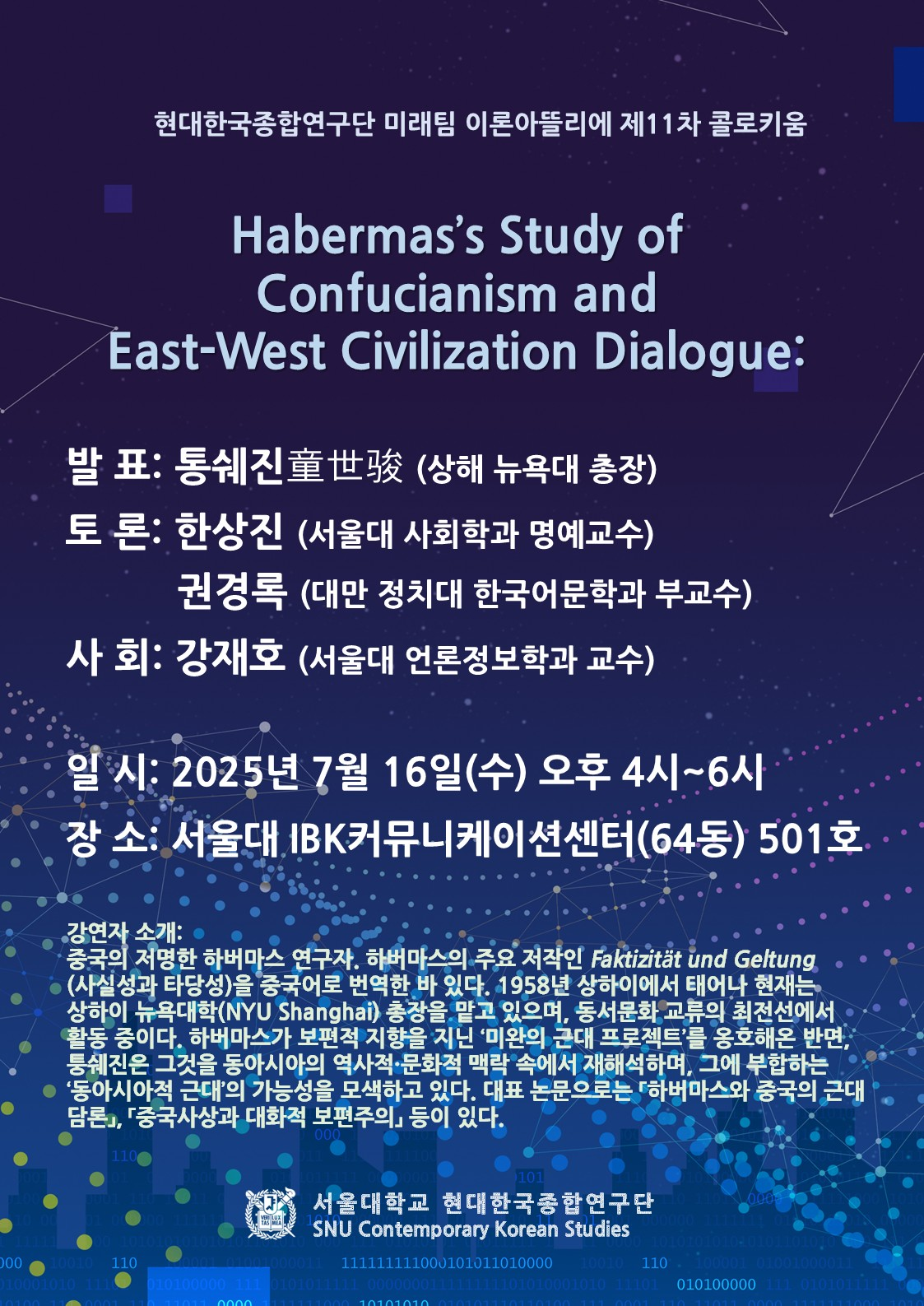
Research Teams
Comprised of nine research teams, each studying aspects of Korean politics, economy, technology, and culture.
We promote interdisciplinary collaboration and global academic exchange.
[Academic] The 11th Theory Atelier: “East–West Civilizational Dialogue through Habermas’s 2019 Study of Confucianism”
2025-08-21

